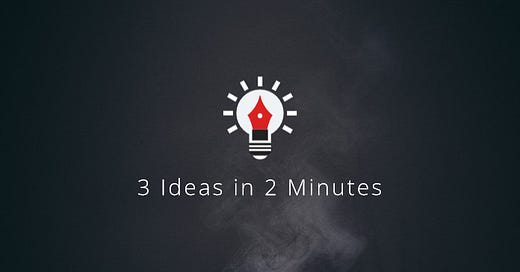I. Lindy Effect
The Lindy Effect suggests that the longer something has been around, the longer it's likely to remain in existence. The concept has its origins as a metaphor for the life expectancy of a comedian’s career: Since comedic material was finite, stand-ups could prolong their careers by conserving their resources.
It was author and essayist Nassim Nicholas Taleb who expanded the concept to non-perishable ideas and technologies in his book Antifragile: Things That Gain from Disorder:
If a book has been in print for forty years, I can expect it to be in print for another forty years. But, and that is the main difference, if it survives another decade, then it will be expected to be in print another fifty years. This, simply, as a rule, tells you why things that have been around for a long time are not “aging” like persons, but “aging” in reverse. Every year that passes without extinction doubles the additional life expectancy. This is an indicator of some robustness. The robustness of an item is proportional to its life!
—Nassim Nicholas Taleb
👉 On a related note, I wrote about Chesterton’s Fence: How to Enact Change.
II. Entropy
The constant abrasion and decay of our lives makes the soil of our future growth.
—Henry David Thoreau
In philosophical terms, Entropy is a metaphor for the inevitable decay, disorder and unpredictability inherent in all existence in the universe. Everything is in constant decay. So we have to continuously work for things not to fall apart. Or as writer Roger Kirkness puts it:
Almost everything, once formed, is constantly moving towards entropy. It takes constant effort to ensure that things move away from entropy and towards antifragility [becoming stronger through adversity rather than being weakened by it]. That said, there are design decisions you can make when building a system, relationship, business or set of values that can make them more antifragile and less likely to entropy (meaning you can extend their shelf life).
But how?
III. Kaizen
Kaizen is a Japanese business philosophy centred around the idea of continuous improvement. It emphasises making small, incremental changes in processes, products and services to achieve better efficiency and quality over time and keeping the product or service from deteriorating.
The other side of the coin of constant and never-ending improvement is the reduction of muda, the Japanese term for waste. Anything that doesn’t add value is to be eliminated. Workers waiting unnecessarily, producing more than is needed or getting rid of product defects are good examples.
It doesn’t matter how small the improvements are. They will accumulate over time and end up having a huge impact.
Source: MindTools
🐘
Have a great week,
Chris
themindcollection.com



